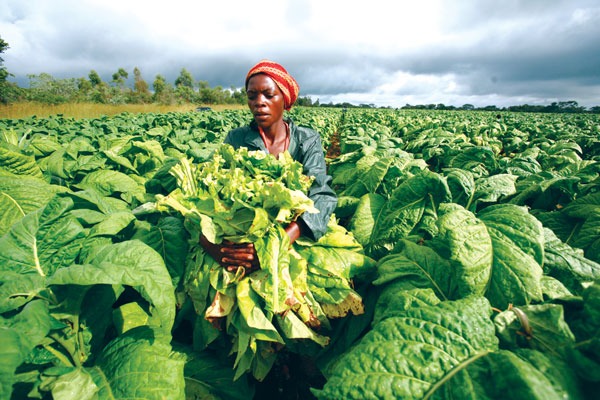
BY FIDELITY MHLANGA
THE hectarage put under tobacco has dropped sharply from 42 000 hectares during the 2018/19 season to 35 998 in the 2019/20 season, signifying farmers’ loss of appetite for the golden leaf due to viability challenges experienced last season.
Statistics from the Tobacco Industry and Marketing Board (TIMB) shows that as of November 30 this year, 140 257 farmers had registered to grow the crop, down from 165 130 last year, a 15% drop, while hectarage under tobacco crop went down to 35 998 hectares from 42 000 hectares.
Currency reforms and poor prices in the last tobacco selling season dampened most farmers’ spirits as they struggled to pay off debts and stay in business.
“Inputs are expensive, but the consoling part is most of the crop is contracted. But what I have heard from farmers is that hectarage has gone gown due to viability challenges experienced last season,” Federation of Farmers Union president Wonder Chabikwa said.
“Most farmers are discouraged such that a huge number has reduced their hectarage and some have completely discontinued tobacco farming.”
As of end of September, tobacco seed sales had declined by 20%, with the volumes being the lowest since 2015, a development that could see reduced hectarage of the crop.
Unlike in previous seasons where farmers made rich pickings as they were paid in hard currency, the just-ended season saw the central bank paying farmers just 50% of their earnings per sale in foreign currency, with the balance settled in local currency.
- Chamisa under fire over US$120K donation
- Mavhunga puts DeMbare into Chibuku quarterfinals
- Pension funds bet on Cabora Bassa oilfields
- Councils defy govt fire tender directive
Keep Reading
Zimbabwe Commercial Farmers Union president Shadreck Makombe said the poor earnings experienced last season had forced some farmers to dump the golden leaf for other cash crops.
“Truth be told, farmers have lost interest in tobacco farming. They felt cheated from last season. The cost of labour, input was not commensurate with their earnings. But because of lack of choice, some end up growing the crop,” Makombe said.
In the past season, the average price of the golden leaf was deplorably low at $2 per kg, down from $2,92 registered the previous season.
Despite recording poor prices, total output grew to 259 million kg in the 2019 season from 253 million kg the previous year.
Auction floor deliveries contributed 14% against 86% from contract farming.
Furthermore, shortages of fuel, power and late rains are militating against crop production, TIMB chief executive Andrew Matibiri said.
“High inputs costs are affecting planned tobacco production, especially for the self-funded growers. Power cuts, low dam water levels and erratic fuel supplies have also negatively impacted on the early planted irrigated crop,” he said.
“The lack of widespread effective planting rains have delayed tobacco planting for some areas as well, while some farmers’ early planted crops have been damaged by hail and wind storms.”
Chabikwa, however, said transplanting was expected to end mid-December.
“Irrigated tobacco was planted in September and reaping is expected by December. Dry land was delayed by late rains, water bodies in tobacco-growing areas are down. Transplanting is still going on and we expect that to wind up by mid-December. Ideally, the cut-off period is end of November,” he said.
Tobacco production remains one of the largest export earners, generating hard currency to import pharmaceuticals, fuel, raw materials and wheat.











